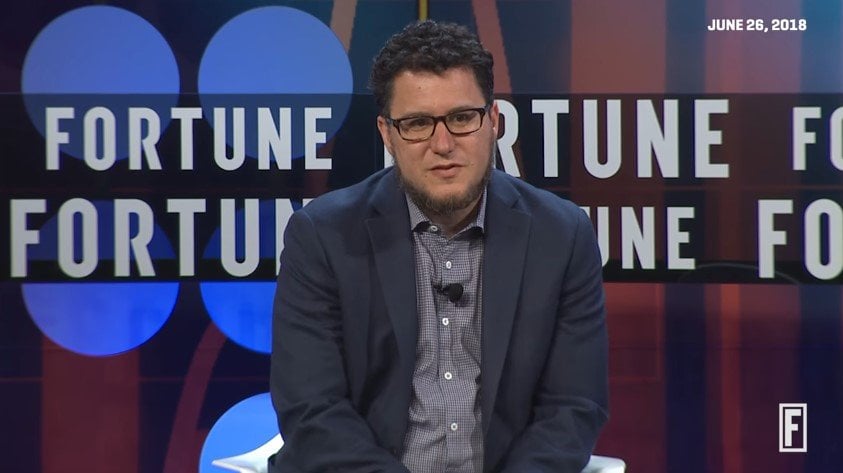Management teams are often pressured to make decisions based on short-term interests and not the long-term potential for their business. Can the public marketplace create better incentives to rid us of our need for fast results in favor of governance that benefits companies, investors, and our communities?
Eric Ries, Author, The Lean Startup; Founder and CEO, The Long-Term Stock Exchange
Eric Ries: Investing For The Long Term – CEO Initiative 2018
Transcript
If you read The Lean Startup all the way to the last page and I know many people did not. OK. But if you go all the way to last Friday by the way too readily and startup in. OK. Thank you. I’ve heard of ways out there for everyone. All right. So you know the best part about being an author is you get to have a last chapter where you suggest all the things that somebody should do something about. So you know somebody should fix education also by the way you know how we teach entrepreneurship to MBA students are a whole bunch of things I thought somebody should fix and share short termism was on that list a common thing to suggest that somebody should fix. And so I had floated this as an idea that somebody should build a long term stock exchange on the theory that if companies are distracted from their fundamental job of serving customers then they’re less valuable. Which I know seems kind of dumb to even have to say it out loud but it seems very straightforward to me it’s less valuable than that’s not good for investors either. So then why do we have all the short term pressure and never made sense to me so I suggested Hey we need to create a new institution that can regulate the behavior of managers and investors at the same time to create a new social contract around long term incentives and alignment. And that sounds to me like a stock exchange.
So someone should create a long term stock exchange or LTC that’s as much as I had thought about it or really knew I didn’t not even know what a stock exchange was at that time. That was just an idea that I put out into the world and then my work here is done. Somebody else will be in charge of solving the problem and then it just was one of those ideas that would not leave me alone in the intervening years. And eventually I decided that I should at least learn enough about capital markets in the financial system to learn why it’s a bad idea. It was very polarizing. Like even early manuscript readers of The Lean Startup I remember one person wrote and said this is such a bad idea. You have to take it out of the manuscript because you are flushing all the hard earned credibility you built up in the preceding three hundred and ninety nine pages and just throwing it away at the end. You know investors will never go for the a whole list of reasons why is it’s a terrible idea most of which came down to like companies just have to do what we say OK. That’s just how it is. And it just never seemed right to me as I don’t understand why we run the financial system the way that we do.
So I spent you know this is now about 2011 so I’m working this for a long time learned enough to know that the the system we have today was not designed by some master planner who said hey what would be the best possible corporate governance system for companies to serve their customers in a best way possible and therefore investors to make the most money possible. We have stumbled our way into this system through a whole bunch of changes over the years and if you track the changes over time every change there was a logic to it it made sense at the time you could understand what everyone was thinking and yet cumulatively they’ve put us in a position that I think our grandparents would find pretty bizarre. Point out Tim Cook last night said if he were king for a day he would flush away quarterly earnings basically. So I think a lot of people agree. I mean we just did a whole session on how this short term is hers is is really brutal. Yeah. And so but at the same time I think there are a lot of people who think this will never work you can’t turn this whole machine around and change the rules like this. So what do you say to those critics. Well I’m used to doing the impossible so I don’t mind. I don’t take it as an insult and it’s taken a long time to figure out how it works. But but there’s like a fundamental change in what stock exchanges do that has made this reform possible this is now 15 or 20 years old but it used to be that you would list on a single exchange and then the trading would happen on that exchange. But in the U.S. for now for quite a while we’ve had that which have a national market system so stocks trade freely across all exchanges which means it’s possible to bring a new exchange to market without compromising the liquidity that companies that are listed on that exchange would have.
And exchanges have this very important I would say a quasi governmental role in regulating corporate governance but they don’t use that power to do the things that we all know companies ought to do to be right for the long term. So our idea is to enact new listing standards.





